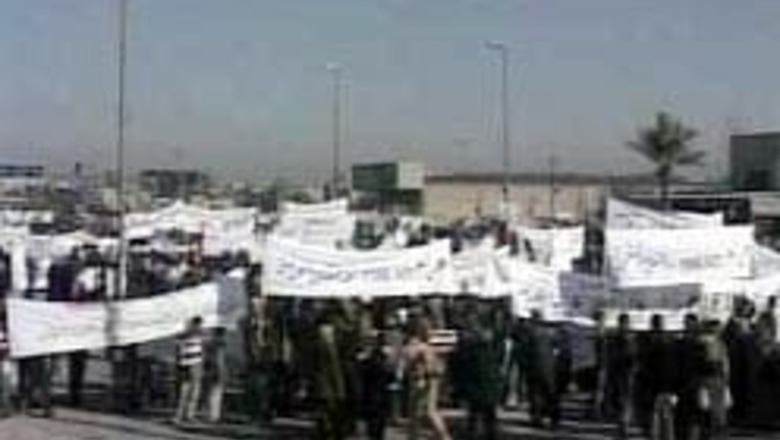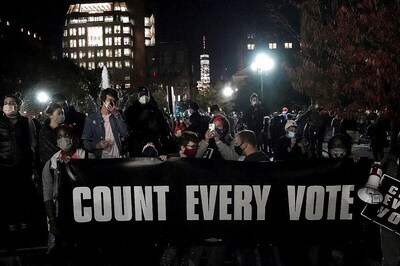
views
Baghdad: Gunmen killed a high-profile Sunni Muslim politician in western Iraq on Tuesday, two days before the nation votes for its first full-term Parliament since the overthrow of Saddam Hussein.
Mizhar al-Dulaimi, who ran his own political party, was shot dead as he campaigned in Ramadi, a violent city west of Baghdad, police said. Three of his bodyguards were wounded.
He was the latest of several influential Sunni Muslims, including a top cleric, to be killed ahead of the December 15 poll, as militants try to wreck the US-backed political process.
The US ambassador to Iraq, Zalmay Khalilzad, condemned Dulaimi's murder and urged Iraqis to go ahead and vote with their consciences on Thursday.
"This is a defining moment. While I encourage participation from all, the US does not endorse any candidate," Khalilzad said.
Dulaimi's killing came a day after the first votes were cast in the election detainees, Iraqi security forces and hospital patients all voted on Monday and as up to two million Iraqis living abroad also began to cast their ballots.
More than 15 million Iraqis are registered to vote in what poll supporters hope will be a watershed event, ushering in a four-year, 275-seat Parliament and a new government to tackle rampant violence, even as foreign forces begin to withdraw.
Security for the election will be stringent with Iraq's borders and airspace closed and travel between provinces banned. More than 150,000 Iraqi police and soldiers will ring 6,000 polling sites and the next five days are a national holiday.
Militant groups have told Iraqis not to go to the polls, calling the election a ?Satanic project?, but most have steered away from the grim threats to kill all voters that they made ahead of the election in January, 2004.
The election is expected to see far higher participation than last time among Iraq's Sunni Arab minority, who form the backbone of the two-year insurgency against the government and US forces. The Sunnis largely boycotted January's poll.
That boycott is now seen as a mistake. Sunnis, powerful under Saddam, saw their influence greatly undermined and Sunni leaders are now determined to make amends for the error.
Several Sunni Arab lists are registered for the poll and are expected to pick up strong support in central and western Iraq, even if some groups remain adamantly opposed to the process.
















Comments
0 comment